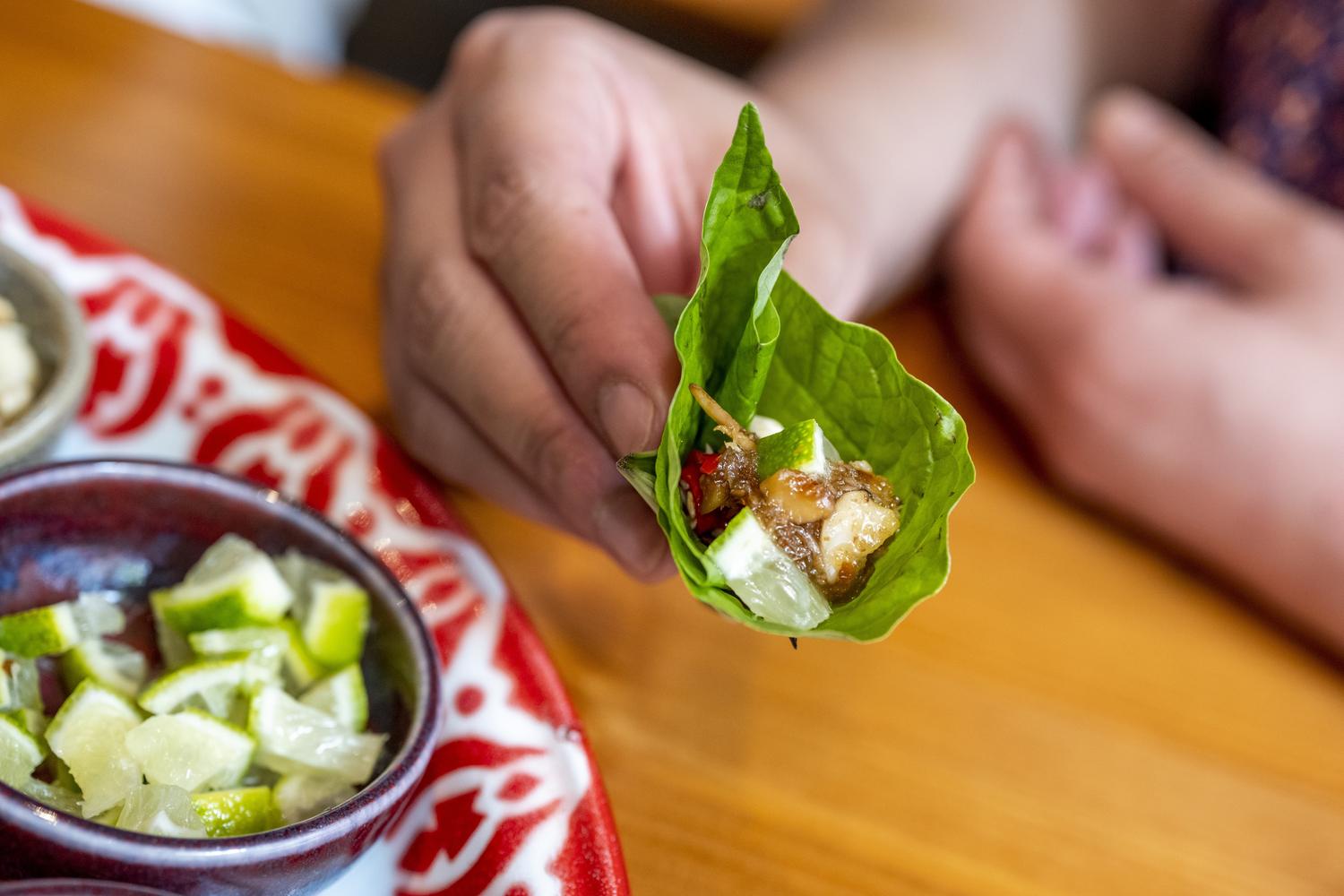Green Cuisine
Enjoying vegan and vegetarian delights in SouthWest Germany

STUTTGART – Schnitzel made from Seitan fish instead of onion roast, tofu sausage instead of Freiburger Rote and veggie dumplings instead of Herrgottsbscheißerle (Swabian ravioli): The cuisine in Baden-Württemberg is diverse and is no longer limited to the traditional classics. More and more restaurants are adding vegetarian and vegan alternatives to pork in their menus, or doing without meat and other animal products altogether. The following restaurants show that regional vegetarian cuisine goes beyond cheese Spaetzle and proves that plant-based dishes are not only delicious, but also good for the environment and climate.
Multi-Kulti Meets Veggie – The Galley in Mannheim
In Mannheim's trendy Jungbusch district, creative people give each other a hand. In addition to numerous pubs, clubs and shops, the vibrant district between the harbor and the city is also home to the pop academy, the music park, and the creative business center C-HUB. If you have a big or small appetite, the "galley" is not far. Vegan and vegetarian dishes are cooked there with lots of love and regional ingredients. With wraps and Tex-Mex cuisine, burgers and bowls, it's culinary from around the world. As the icing on the cake, a surprise awaits “below deck:” a small theater with 25 seats and a tiny stage, where programs are offered from time to time.
Vegan with a Heart – My Heart Beats Vegan in Karlsruhe
"Do good. Eat yummy" is the motto in Karlsruhe's first purely plant-based restaurant: "My Heart Beats Vegan." In fact, sustainability and enjoyment have been going hand in hand in this restaurant since 2015. Cooking is guaranteed without flavor enhancers and aroma additives, but with good ingredients and everything is 100 percent vegan. The concept, which was initially tested in the food truck, aims to do something good for the environment, animals, people, and nature. Nevertheless, there is no need to compromise on the enjoyment experience, and the varied menu leaves nothing to be desired. As the eyes also like to eat, they pay attention to creating an inviting atmosphere.
Gastro Vision Suitable for Grandchildren – Tacheles Oberkirch
Sometimes when you are really lucky, all you need is a brilliant idea: In the spring of 2019, two friends from Oberkirch with an affinity for gastronomy and indulgence had the vision of starting a project suitable for their grandchildren. A central location was quickly found. Today, the veggie restaurant "Tacheles" welcomes its guests and fans in the center of the Ortenau district town. Lunch is served from Wednesday to Friday, after work on Thursdays with cocktails and burgers, and breakfast on the first weekend of the month. Everything is made from regional, fresh food from the market and from local producers. The concept works: The shop is running, and the team has grown. If you stop here today, you will meet four powerful women.
Experimental Cooking with Plants – Vhy Stuttgart
Who, how, what? Why, why, why? In the trendy Stuttgart restaurant “Vhy!,” people prefer to act than get lost in questions. And preferably to act creative and experimental. Soccer player Timo Hildebrand and artist Tim Bengel focus on change and variety with their vegan kitchen concept because it's fun, tastes delicious, and is good for you. That's why only organic and “Demeter” products are served. Nobody should feel they have to be converted to veganism, but with the delicious and colorful plant-based creations, it cannot be ruled out that it will happen anyway. The motto is "Be relaxed, stay flexible and absorb impulses."
Organic Fine Dining – 1950 Hayingen
The world's first "Demeter & Bioland fine dining restaurant" is located in the middle of the Swabian Alb biosphere region. The restaurant "1950" expands the gastronomic offer of the Tress family and honors the legacy of the grandfather, Johannes, who laid the foundation for the sustainable corporate philosophy that is still being pursued today. The highlight: For each course of the vegetarian "CO 2 menu" served here, the guest receives comprehensive information about the ingredients, including the CO 2 emissions to the kilometers they have traveled from the farm to the restaurant. To ensure that there is no waste in the kitchen, Simon Tress and his team work strictly according to the "leaf-to-root" principle.
Downloads
- Green Cuisine.doc (doc - 704 KB)
- Green Cuisine.pdf (pdf - 167 KB)
